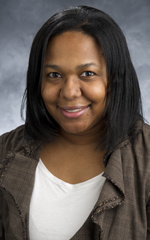Campus Voices is a place for faculty, staff and students to share ideas, views and information about issues that matter to them personally and professionally. The opinions expressed here do not necessarily represent those of the University of Iowa. View more Campus Voices here.
In the counseling profession, we know that the relationship between the counselor and the client is the key to success. Counselors are very intentional about creating an environment where this relationship can begin and grow. We call this “building rapport.”
A key component in building rapport is understanding and respecting the client’s life experience prior to beginning counseling. To prepare our students to work with diverse clients, including differences in culture, socio-economic status, education, sexual orientation, and more, counselor training programs include a heavy emphasis on becoming culturally competent, which equips counselors with the awareness, knowledge, and skills to work with clients on their own terms.
As counseling research continues to evolve and expand on the issue of multiculturalism, we have learned that there is not one profession whose clients and customers wouldn’t benefit from their service providers having received multicultural training.

When it comes to having a diverse population to serve, I believe educators are at the top of the list of those most likely to fall into this category.
Most of us would agree that diversity in school populations benefits all, especially our children as it prepares them for entering and competing in a future global workforce. Despite this obvious advantage, many educators charged with teaching diverse populations are well-intentioned people without the tools needed to educate a diverse pool, having received little or no multicultural training.
This is an issue facing school districts nationwide as they grapple with the best ways to meet all students’ educational needs. Here in Iowa City, we have an advantage over many other districts as we address the issue of diversity in education.
Right here at home, our local educators have access to the University of Iowa’s Multicultural Education & Culturally Competent Practice (ME-CCP) certificate, which offers training and support for graduate students, educators, and community members who seek a deeper understanding of issues and concerns in a diverse community. This program, which has garnered interest from individuals from a vast array of disciplines, represents a partnership between the College of Education and the Graduate College. (Information available from the Office of Graduate Inclusion.)
This setting offers our teachers and school leaders the opportunity to come to a deeper understanding of the many outside factors that influence classroom achievement, not the least of which may be that students are performing to the level they believe their teachers expect. This is not a question that we can ignore given the widespread concern and the rapidly growing diversity in our Iowa City schools.
Myrlie Evers-Williams, the civil rights activist who delivered the invocation at President Obama’s inauguration last month, prayed that our President will, among other duties, act courageously and cautiously in the favor of all the diverse people in the land of America. I call on my fellow scholars, parents, and community members to join me in having the courage to speak on this issue that is causing division in our community, but to do so with caution so as not to stifle the discussion with pointed fingers or accusations.
Let us work together to build rapport within our community—to listen to each other with respect and commit to gaining a deeper understanding of our neighbors whose backgrounds are different from our own. In this way we can begin to create an educational environment that will truly support and benefit the beautifully diverse group of students we are proud to call our own.
Asabi A. Dean, originally from Chicago, is a graduate student in the UI College of Education seeking a doctorate in Counselor Education and Supervision. She is also an advanced doctoral graduate assistant and assistant coordinator for the Multicultural Education and Culturally Competent Practice (ME-CCP) certificate program.
